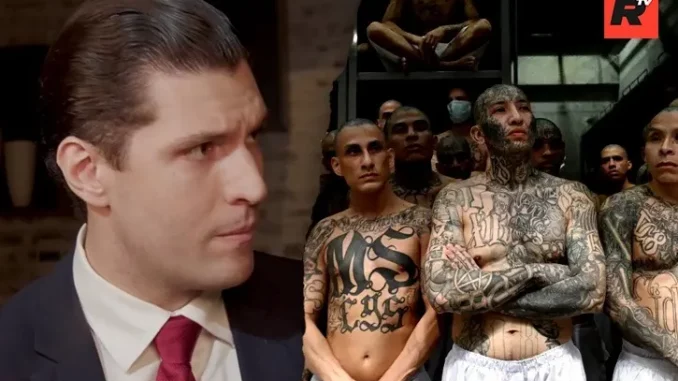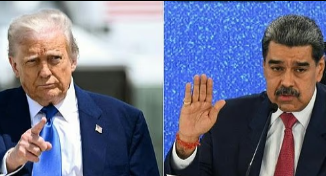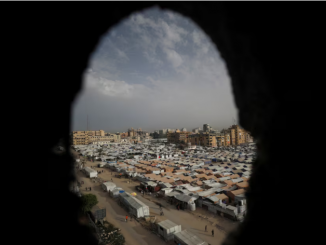
| Published August 8, 2025
El Salvador used to have a murder every hour. These days it’s ‘safer than Britain’ — but at what cost? Stephen Gibbs gets a first-hand view of the draconian criminal justice system of Nayib Bukele
Not long ago, El Salvador was a name whispered in fear—a tiny Central American nation plagued by gang warfare, earning the grim title of “Murder Capital of the World.” In 2015, its homicide rate topped 100 murders per 100,000 residents, a figure so high that many believed the violence was irreversible.
Today, the story is almost unrecognizable. In 2024, that same rate plummeted to 1.9 per 100,000, making El Salvador one of the safest countries in the Western Hemisphere. Tourists stroll the beaches of Surf City. Families gather in parks once controlled by MS-13. And the nation’s president, Nayib Bukele, enjoys sky-high approval ratings for doing what many thought impossible—defeating the gangs that terrorized his country for decades.
The Bukele Formula
The transformation rests on a hard-edged strategy that Bukele calls a “war on gangs,” launched in March 2022 under a State of Exception. This emergency measure suspended certain constitutional rights—allowing police and military to make arrests without warrants, monitor communications, and detain suspects indefinitely.
In just over two years, more than 83,000 people have been arrested. Vast prison complexes, including the massive Terrorism Confinement Center, hold tens of thousands of alleged gang members. Videos released by the government show tattooed inmates lined up in shackles, heads bowed—a stark image of Bukele’s zero-tolerance approach.
Supporters hail the results: neighborhoods once ruled by extortionists and murderers are now safe enough for children to play outside after dark. Critics, however, argue that the crackdown has come at a steep cost to civil liberties, with reports of arbitrary detentions and limited access to legal counsel.
Economic and Image Rebirth
The security gains have triggered an economic revival. Tourist arrivals surged to 3.9 million in 2024, up from near zero during the worst gang years. Tourism now makes up 14% of GDP, with ambitious projects like Surf City promising half a million jobs and billions in revenue over the next decade.
The country’s rebranding is bold. Government ads feature turquoise waves, bustling markets, and pristine colonial towns—not the shadow of fear that once defined the national image. For the first time in years, the phrase “vacation in El Salvador” is being spoken without irony.
The Price of Peace
Bukele’s success is undeniable—but it’s not without controversy. Human rights organizations warn that the cost of order has been the weakening of judicial independence, restrictions on press freedom, and a tolerance for indefinite detention without trial.
Some analysts caution that maintaining low crime rates will require transitioning from emergency powers to sustainable, lawful governance—something no nation has yet achieved under such a sweeping crackdown.

Esmahan, a lifelong Salvadoran who’s studied the nation’s political fault lines for decades, didn’t mince words about the horrors of the past.
 Implications:
Implications:
Here are the key implications of El Salvador’s “murder capital to paradise” turnaround — looking at it through security, migration, economic, and political lenses:
1. Security Model Implications
-
For Central America: Bukele’s crackdown has become a regional reference point. Countries like Honduras and Ecuador have already adopted elements of his mass-arrest and military-heavy policing strategies.
-
For the U.S. Border: If fewer Salvadorans feel compelled to flee gang violence, this could contribute to a measurable drop in asylum claims from the region.
-
For Law Enforcement Philosophy: It signals that extreme security measures can achieve short-term results—but at the cost of civil liberties. The question becomes whether societies are willing to trade freedoms for safety.
2. Migration Implications
-
Reduced “Push” Factors: Lower homicide rates may reduce violence-driven migration, shifting the main causes of migration toward economics or family reunification.
-
U.S. Immigration Policy Pressure: U.S. policymakers may feel emboldened to support similar hardline strategies in origin countries to curb migration flows.
-
Political Leverage: El Salvador could use its improved safety image to negotiate better trade, aid, and migration agreements with Washington.
3. Economic Implications
-
Tourism Boom: The surge from nearly zero foreign tourism during gang control to 3.9M visitors in 2024 is transforming GDP composition. This could stabilize the economy and reduce migration pressures.
-
Foreign Investment Magnet: Improved security may attract investors in sectors like manufacturing, logistics, and real estate.
-
Risk of Over-Reliance on Tourism: If safety is perceived to decline or if human rights criticisms trigger sanctions, tourism gains could evaporate.
4. Political & Human Rights Implications
-
Model for Strongman Governance: Other leaders may see Bukele’s success as justification for suspending constitutional rights.
-
Democracy Under Strain: Extended “States of Exception” could normalize a lack of judicial independence, press freedom restrictions, and indefinite detentions without trial.
-
U.S. Diplomatic Dilemma: Washington must balance praising the crime drop with addressing human rights abuses, especially given its own human rights commitments.
5. Strategic Geopolitical Implications
-
For the U.S.–China Rivalry: A stable El Salvador becomes a more reliable partner for U.S. influence in Central America, potentially countering Chinese economic inroads in the region.
-
Migration Narrative Shift: If migration numbers from El Salvador drop sharply, the debate in the U.S. over border security may pivot toward other source countries, changing the political battlefield.
 Overall Takeaway:
Overall Takeaway:
El Salvador’s transformation from the world’s murder capital to one of its safest nations is a rare, dramatic shift in modern history. It proves that decisive action can dismantle entrenched criminal networks and restore public order—but it also exposes the steep cost of such victories. The gains in security, tourism, and investment are real and measurable, yet they rest on a foundation of suspended rights, mass incarceration, and weakened democratic safeguards.
For the United States, the implications stretch from border security to regional diplomacy: a safer El Salvador may ease migration pressures, strengthen economic ties, and serve as a geopolitical ally. But adopting or endorsing this model elsewhere risks normalizing authoritarian shortcuts in the name of public safety.
Whether El Salvador’s story becomes a blueprint for others or a cautionary tale will depend on one test—its ability to preserve peace without sacrificing the freedoms that make it worth having. In the end, the country’s greatest challenge may not be defeating gangs, but proving that security and democracy can coexist.





Be the first to comment